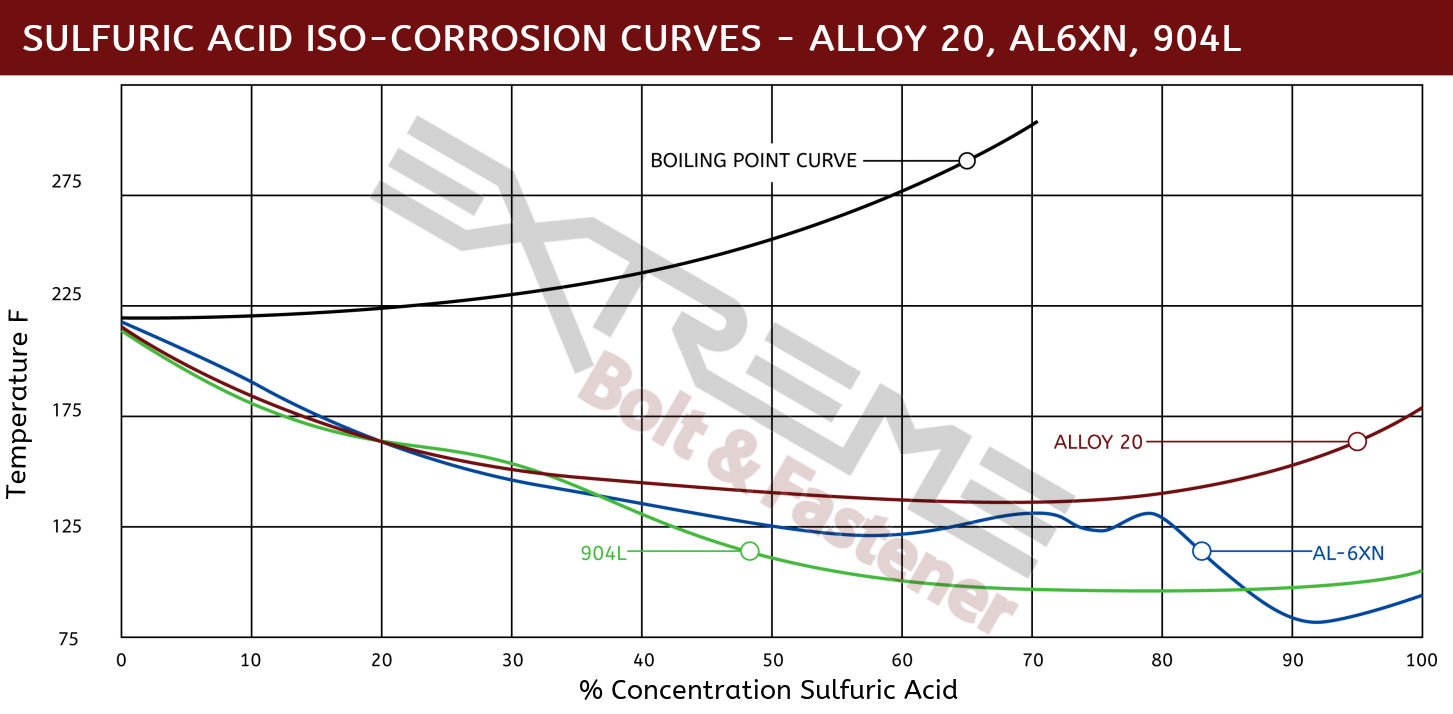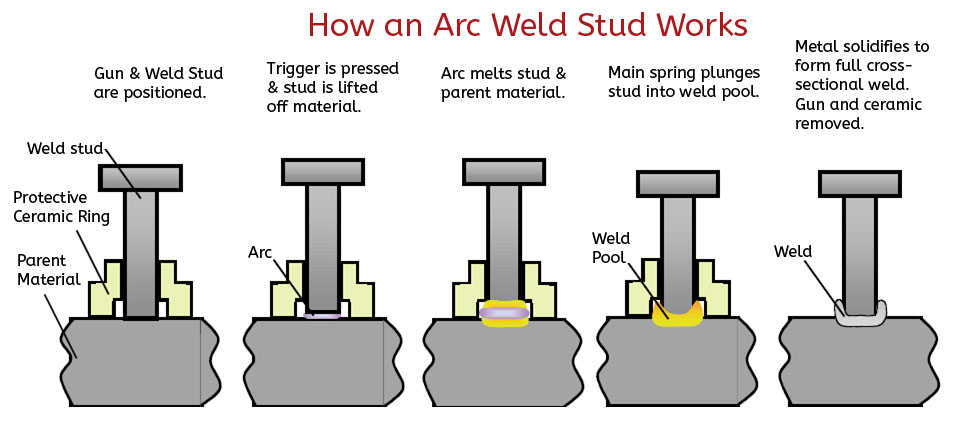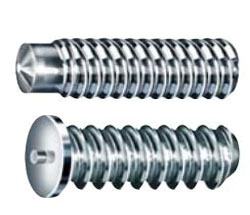 Good Mid-Range Corrosion Resistant Alloy
Good Mid-Range Corrosion Resistant Alloy
- Mid-range Alloy 20 Torque Specs alloy
- Decent mechanical strength to 1000°F
- Alloy 20 chemistry and specifications
- Alloy 20 sulfric acid performance
- Features & benefits of Alloy 20 weld studs
- How an Alloy 20 arc weld stud works
- Alloy 20 Datasheet
Alloy 20 weld studs are available in a variety of fastener styles for manual (MIG, TIG) arc and capacitor discharge welding methods. Best suited for mid-range corrosion use – better than steel alloys but not the high level or performance of Hastelloy, Alloy 20 weld studs provide a secure, cross-sectional weld in single-sided access situations for a wide variety of extreme environments.
Alloy 20 is a nickel alloy that was initially designed to withstand the harsh environment of hot sulfuric acid but also performs well in a variety of other acids. Alloy 20 weld studs are an ideal choice when you don’t need the corrosion resistance power and price-tag of high performance nickel alloys like Hastelloy C276; but you need something that will give you more protection than 316 stainless steel or even a Super Duplex 2507 stainless steel.
Corrosion Resistance
Alloy 20 weld studs provide good performance in hot sulfuric acid, specifically they offer good resistance to stress-corrosion cracking in boiling sulfuric acid at specific range of 20% to 40% concentration, as well as general sulfuric acid resistance. Alloy 20 offers solid acid protection and will perform better than Duplex or even Monel, but for high temperature and high concentration acids, you may need to look to Inconel or Hastelloy fasteners. In addition, Alloy 20 weld studs also show useful resistance to phosphoric acid and nitric acid.
Key Corrosion Resistant Features:
- Good sulfuric acid protection at 20% - 40%
- Decent stress corrosion cracking, pitting and crevice corrosion resistance in chloride
- Resonable general corrosion protection
- Good intergranular corrosion resistance in the as-welded condition
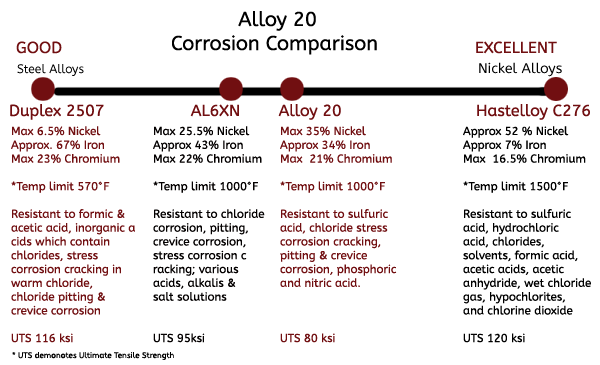
Mechanical Properties
• Ultimate tensile strength: 80 ksi
• Yield strength: 35 ksi
• Density: 0.292 lb/in.3
• Electrical Resistivity (RT) 651 ohm-cir mil/ft
• Elongation: 30%
Temperature
In addition to their corrosion resistance, Alloy 20 weld studs also perform well at moderately high temperatures, with the ability to maintain their mechanical strength up to 1000°F.
Applications
• Power plants rely on alloy 20 weld studs for flue-gas desulfurization
• Alloy 20 weld studs are used in mid-range corrosive chemcial processing environments.
• Manufacturers of plastics and synthetic rubber also utilize alloy 20 fasteners.
Resources: Alloy 20 Torque Specs, Flange Dimensions, Flange Bolting Chart
Alloy 20 Screw Types: 12 Point Screws, Button Head Cap Screws, Flat Head Screws, Hex Head Cap Screws, Pan Head Screws, Set Screws, Socket Head Cap Screws, Torx Screws
Alloy 20 Weld Stud Features & Benefits
Alloy 20 weld studs are an ideal way to securely attached fasteners in extreme applications where reaching both sides of a structure is impossible or undesired. These weld studs can be attached by a variety of welding techniques, such as MIG or TIG welding or they can be attached by automated welding guns using Arc or Capacitor Discharge (CD) technologies.
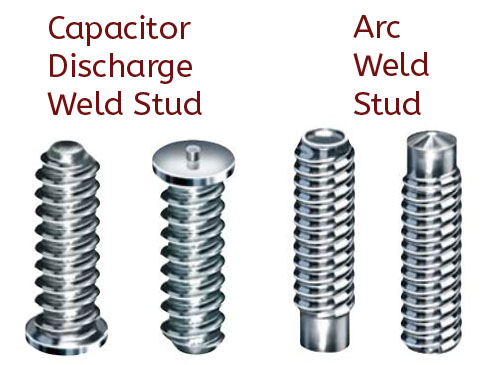 Arc and Capacitive Discharge (CD) Weld Stud Benefits
Arc and Capacitive Discharge (CD) Weld Stud Benefits
- Security: Unlike the peripheral weld used on a common bolt, the weld used to secure a weld stud fastener is a full cross sectional weld, so the full face of the fastener is welded in place for a strong, secure hold. And since there are no drilled holes – which weakens the structural integrity of the application – the attachment is even stronger.
- Speed: Installing an alloy 20 weld stud is a fast and simple process with a most fasteners taking less than 1 second to weld in place. Plus there is no secondary work such as drilling, polishing or grinding.
- Simplicity: Weld studs require almost no special skills and minimal training and equipment is needed for installation. In addition, the equipment is also portable.
- Variety: Alloy 20 weld studs are available in a wide variety of fastener styles including (but not limited to) fully threaded, partially threaded, full base, reduced base, long, tapped base, and shoulder thread to name a few.
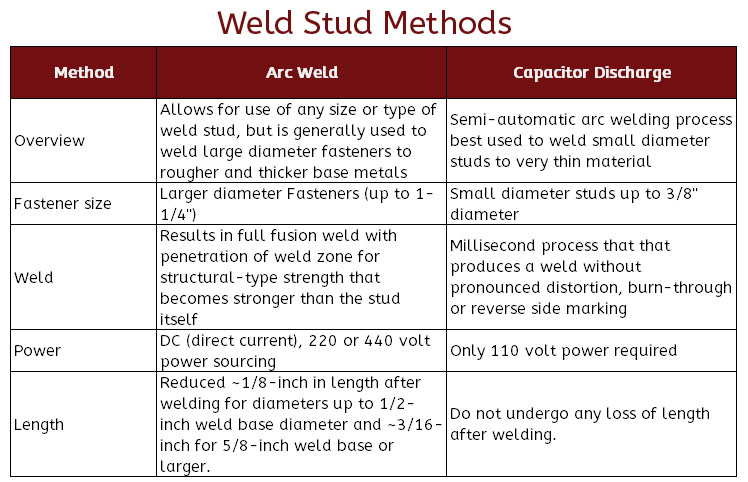
Alloy 20 Chemistry & Specifications
Alloy 20 Specifications: UNS N08020, ASME SA240, , ASME SB366, ASME SB462, ASME SB463, ASME SB464, ASME SB473, ASME SB729, ASTM A240, ASTM B366, ASTM B463, ASTM B464, ASTM B473, ASTM B729, ASTM BB462, ANSI/ASTM A555-79, EN 2.4660, , Werkstoff 2.4660, CN7M, DIN 2.4660

Alloy 20 Sulfuric Acid Performance
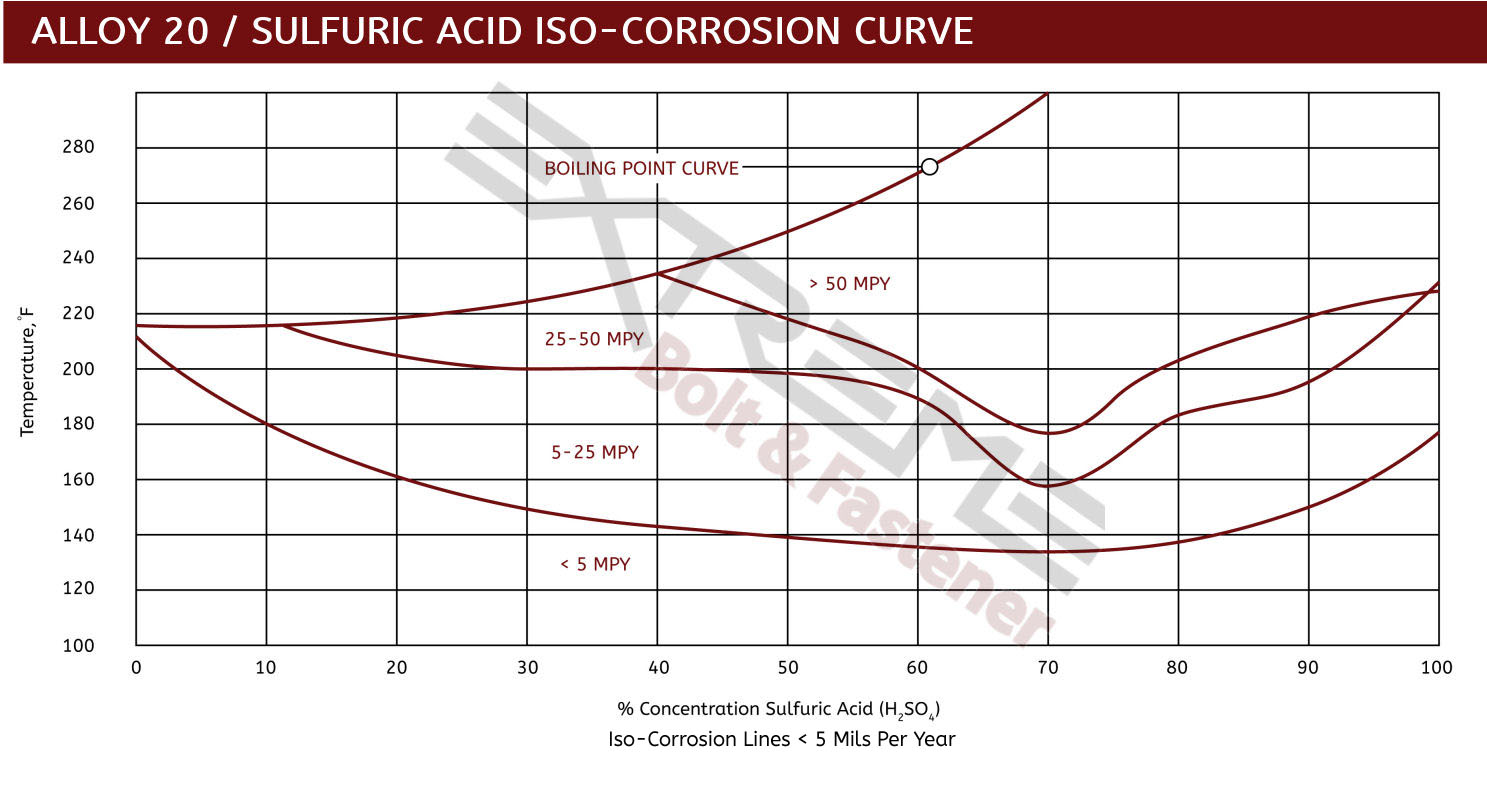
Alloy 20 Sulfuric Acid Comparison
